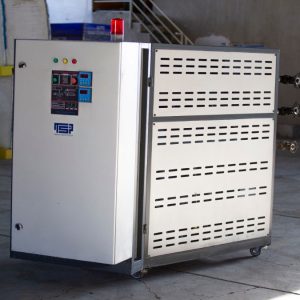Material Conveying System
Choosing the right material conveying system for various types of dry solid bulk materials, from powder to granules and flakes, is crucial for proper functionality, economic efficiency, and appropriate application. Complex and unreliable systems not only result in low productivity but also lead to complete system shutdowns and high maintenance and repair costs.
The properties of materials, including size, shape, density, and other factors, significantly impact the choice of size and type of conveying system. The length of the system and the number of bends in the path are crucial design factors in the measurement process. After initial material sampling, TSPtech co. considers all key factors and recommends the most suitable system.
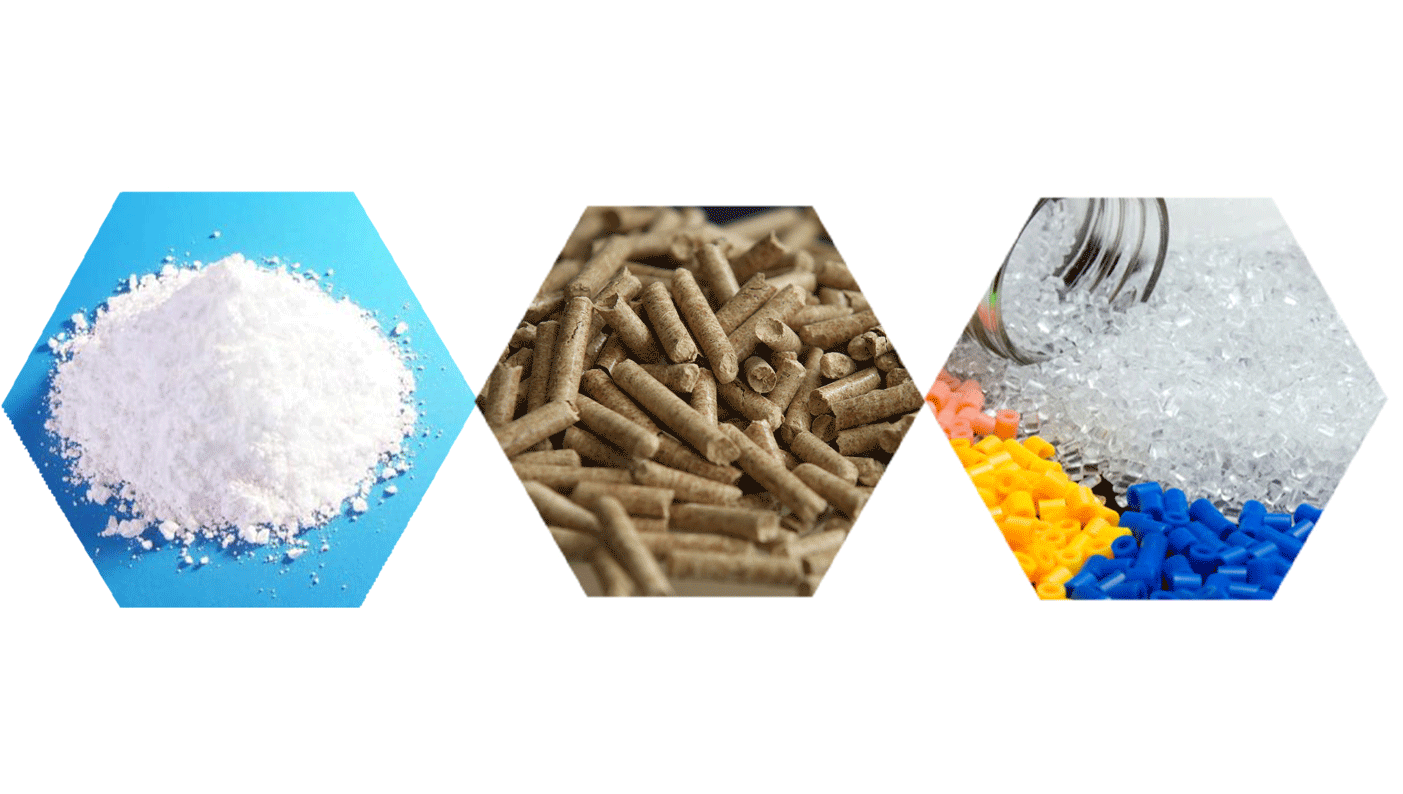
The most common material conveying systems are as follows:
Dilute Phase Pneumatic Conveying System
Dense Phase Pneumatic Conveying System
Screw Conveying System
Tubular Drag Conveying System
For all your complex needs
Dilute Phase Pneumatic Conveying System:
A dilute-phase pneumatic conveying system is used for a wide range of dry solid materials. The system is simple and cost-effective in nature. Materials are uniformly added to the high-speed air stream using a rotary valve and are conveyed to the receiving station through a conveying pipe.
Using positive pressure and vacuum systems facilitates handling materials from multiple source points and enables transfer and distribution to multiple destinations. Additionally, a dilute-phase conveying system supports the use of flexible pipes (vertical, horizontal, and curved). Standard piping and relevant filters create a confined transportation environment, ensuring safe, hygienic, and clean conveyance.
The products typically transported in **dilute phase systems** include flour, resins and compounds, specialty chemicals, ground feed, and grain and pellet products.
The common types of **dilute phase systems** used in TSPtech co. include:
1- Positive Pressure
Suitable for conveying from one source to multiple destinations
Increased efficiency
2- Vacuum
Suitable for conveying from multiple sources to one destination
Dust-free operation

Dense Phase Pneumatic Conveying System
The dense phase pneumatic conveying system is used for conveying hard, abrasive, and brittle materials at low speeds.
In this method, materials are transferred with a small amount of air at high pressure.
The use of compressed air reduces operational costs and increases efficiency.
This process usually means conveying materials from a single source to one or more destinations.
Reasons for using the dense phase conveying system:
* Efficient and effective movement of abrasive and brittle materials
* Low operational costs through low air consumption
* Minimal wear for long-term performance
* Minimal material degradation
* Minimal maintenance and repairs
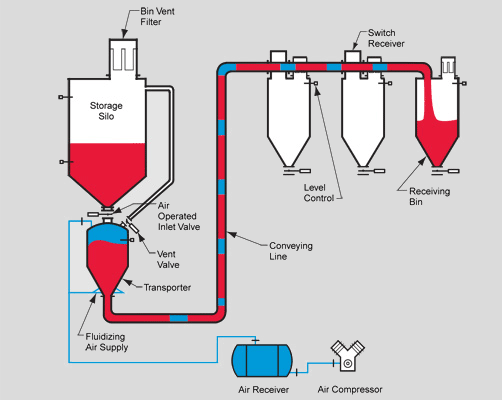
For all your complex needs
Tubular Drag Conveying System:
In this method, polymer discs attached to a cable transport materials inside a tube. The discs and cable are guided by a wheel to the end of the circuit and are pulled from the other side by the opposite wheel. This system allows for single or multiple inlets and outlets to be installed, and the guidance of the tubes can be horizontal, vertical, or diagonal.
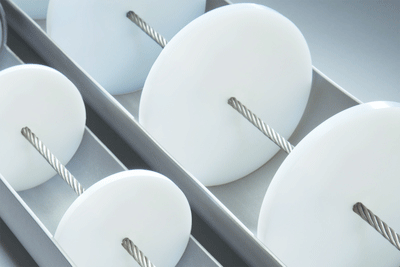
TSPtech optimizes and uniquely designs various transfer systems suitable for materials, horizontal and vertical distances, capacity, and process type, undertaking construction, implementation, and consultation. All the systems provided are smart and engineered for easy operation by our specialists.
Comparison of Conveying Systems
Designing a conveying system is highly dependent on the type of material, distance, and also the transfer capacity. Disc elevator, screw, and pneumatic phase dilute and dense transfer systems have fundamental differences in performance depending on the type of application. Since many factories transfer bulk materials at various capacities and distances, a combination of these transfer systems is recommended to optimize system performance and return on investment

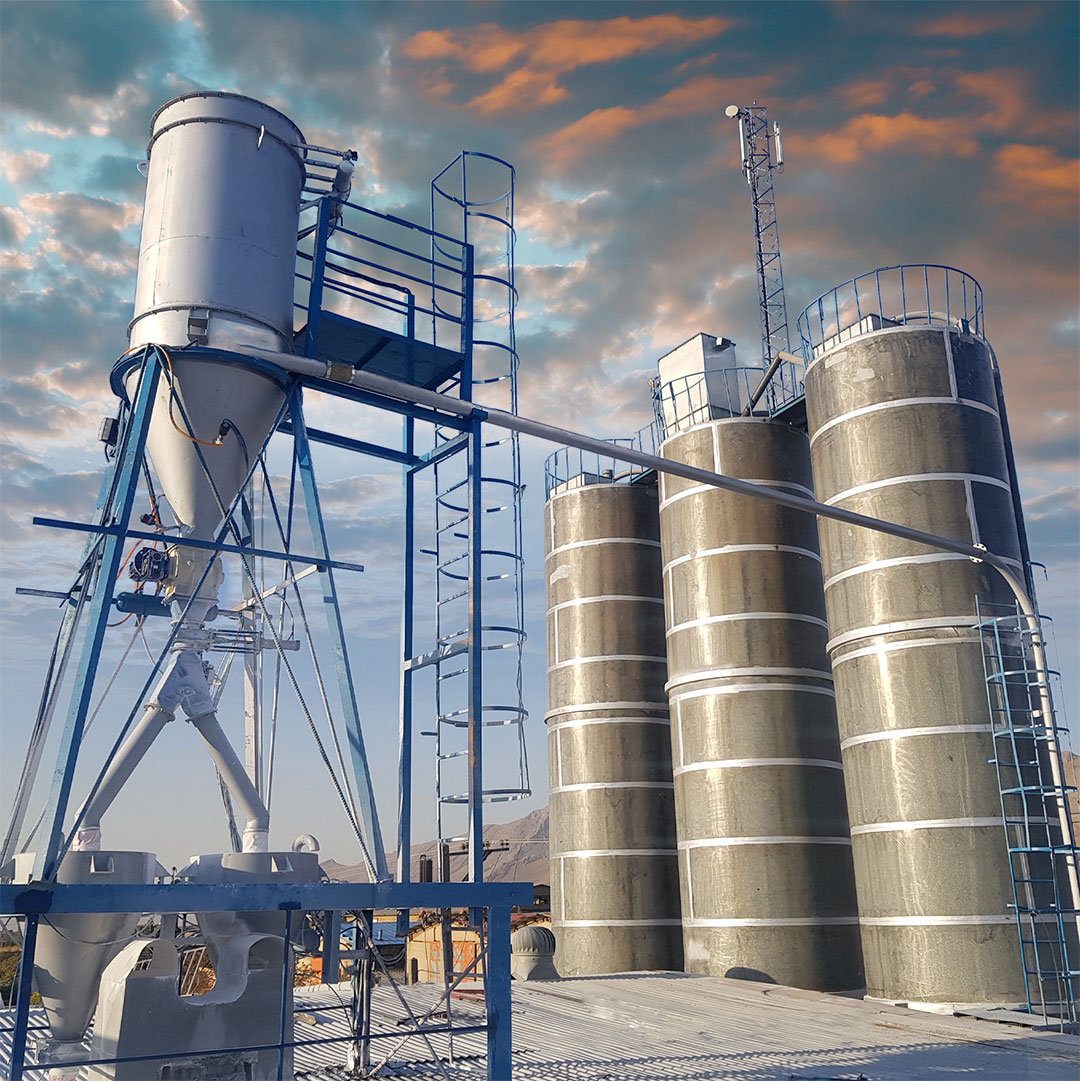
Conveying System Valves
Rotary Valve
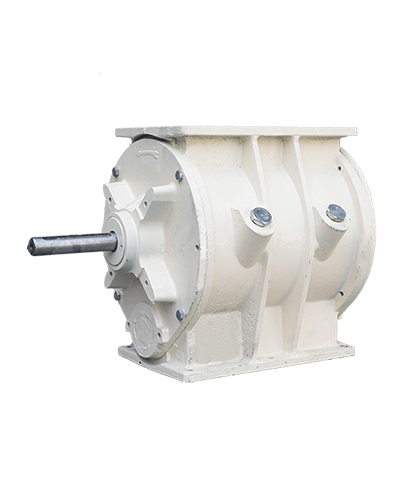
Sliding Diverter Valve
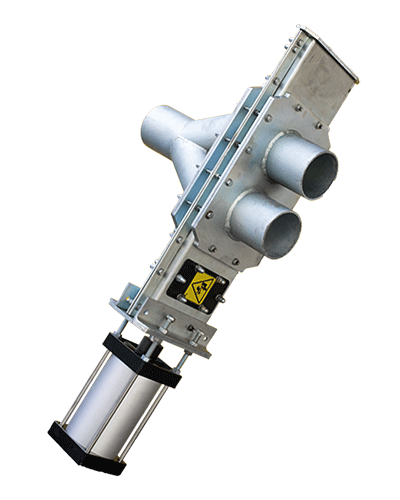
Sliding Gate Valve
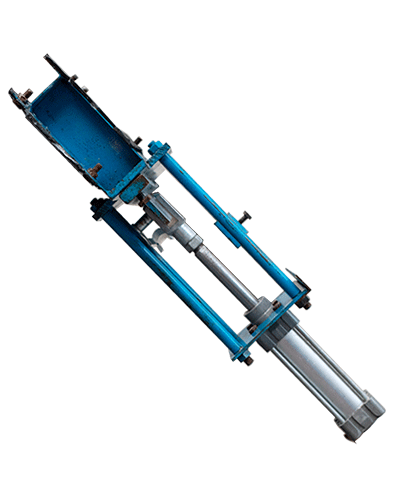
Diverter Valve
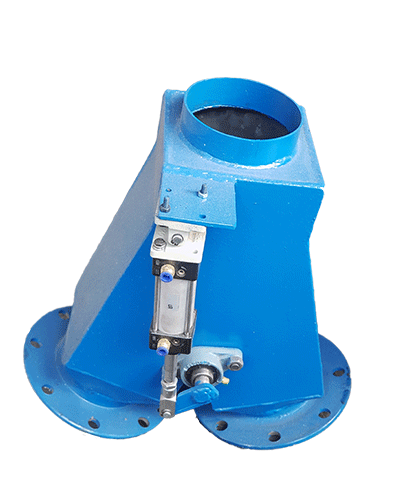
Our Innovations
OTHER PRODUCTS
Material dosing systems are used to increase accuracy, reduce labor hours, and overall improve efficiency. We work in the fields of continuous and discontinuous gravitational dosing. It is also possible to implement weighing systems alongside our own transfer systems.
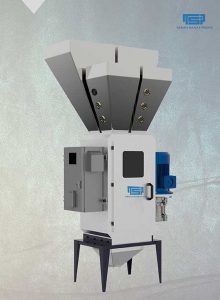
TSPtech with several years of experience in the field of design, construction, and implementation of various dust collection systems, air filtration, and ventilation in industrial factories, provides comprehensive and efficient solutions for industrial ventilation. We achieve high efficiency and low energy consumption coefficients using state-of-the-art equipment. Read More
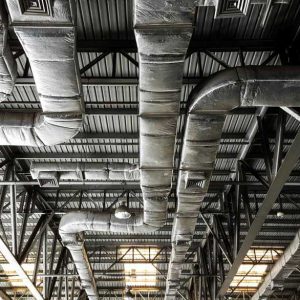
The FG series Pulverizer by TSPtech are used for powdering semi-hard, brittle, and impact-resistant materials in processes that require a powdered product. These mills are specifically designed to handle materials that need to be converted into powder form. Read More
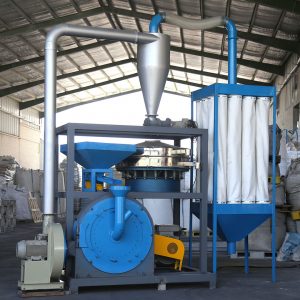
These equipment, through dust filtration, capture suspended particles and harmful fumes generated during the production and manufacturing process. They not only preserve and improve the quality of the workplace air and enhance safety but also, whenever possible, recycle valuable dust back into the production cycle, significantly increasing production efficiency. Based on the usage type and industrial unit conditions, we design, manufacture, and implement the best dust collection system. Read More
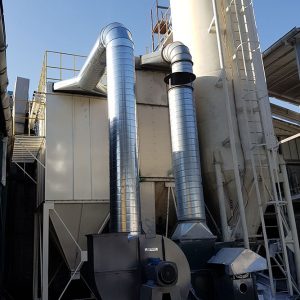
Silo dust collectors are used to prevent material loss and also to prevent pollution during the discharge of dry bulk materials into various storage tanks and silos. Our silo dust collectors are designed and manufactured according to usage and capacity requirements. Read More
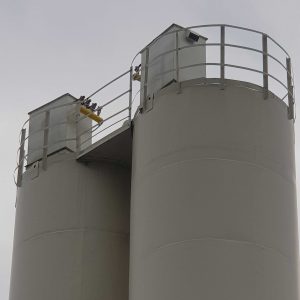
The CTC series hot oil temperature control systems are designed and manufactured for a wide spectrum of high-temperature applications (ranging from 120°C to 260°C). In these systems, the oil flow operates in a closed circuit with low pressure, high flow rates, and comes into contact with electric heaters to achieve optimal heat transfer within the flow. Read More
